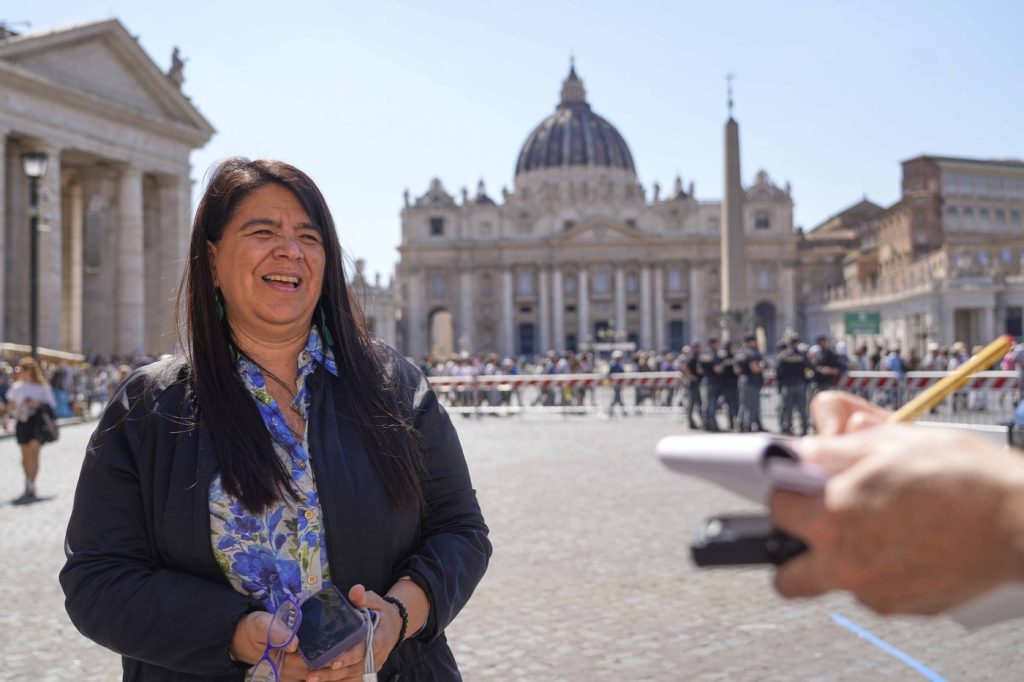VATICAN CITY (AP) — As Pope Leo XIV’s past record in dealing with clergy sexual abuse cases faces increased scrutiny, victims of a powerful Catholic movement he helped dismantle have emerged as staunch defenders of his efforts. The Sodalitium Christianae Vitae, which was formally dissolved by Pope Francis in 2023, was found to have engaged in sect-like spiritual, physical, and sexual abuses against its members, following a comprehensive Vatican investigation.
The victims assert that beginning in 2018, when Robert Prevost was a bishop in Peru, he took their claims seriously, rallying the Vatican’s support and providing financial reparations for the harm suffered by the victims. They credited Prevost with orchestrating a crucial meeting with Pope Francis in 2022, which ultimately prompted the Vatican investigation leading to the group's suppression.
José Rey de Castro, a former member who served as the personal cook for Sodalitium leader Luis Fernando Figari, emphasized that what made Prevost stand out was his willingness to listen. Given the immense power held by the Sodalitium, that was a rare and significant response from a priest.
The Sodalitium was established in Peru in 1971 by Figari, a layman, with the goal of recruiting "soldiers for God" as a conservative counter-movement against the leftist liberation theology gaining traction in Latin America during the 1960s. At its peak, the group boasted about 1,000 core members and even more supporters across South America and the United States, especially in Denver, cementing its influence within Peru.
Starting in the year 2000, troubling stories about Figari's abusive practices began to emerge, culminating in a series of articles published by a former member in the magazine Gente. Despite formal accusations being raised in 2011, it was not until the publication of the 2015 book "Half Monks, Half Soldiers" by journalist Paola Ugaz and former member Pedro Salinas that concrete actions were taken by both the local church and the Holy See.
In 2017, a report commissioned by the new Sodalitium leadership confirmed numerous allegations of egregious abuses by Figari, including sexual coercion and psychological manipulations that created an environment of fear and control. Yet victims often faced silence and inaction from the Catholic hierarchy when they attempted to report their experiences.
Prevost, who was appointed bishop of Chiclayo in 2014 and later elected vice president of the Peruvian bishops conference, became instrumental in bridging connections between victims and the Sodalitium. After a meeting with Rey de Castro in 2021, Prevost played a key role in negotiating a confidential settlement for the victims and supported Ugaz and Salinas when they were legally threatened by the Sodalitium for their investigative efforts.
Prevost's decisive actions culminated in a meeting with Pope Francis on November 10, 2022, where Ugaz presented evidence of the abuses, leading the Pope to dispatch top investigators to Peru. The ensuing investigation resulted in significant repercussions for the Sodalitium, including the resignation of archbishop José Eguren in April 2024, and the eventual formal dissolution of the group, which accepted its fate and publicly asked for forgiveness for the abuses committed.
In recent developments, Prevost has found himself targeted by a defamation campaign questioning his handling of previous abuse accusations, particularly one involving three sisters against a priest in his diocese. However, both the diocese and the Vatican have defended Prevost, asserting that he acted responsibly by removing the priest and collaborating with relevant authorities and support services. Nevertheless, the case has reignited demands from victims’ groups for accountability from Pope Leo XIV.











